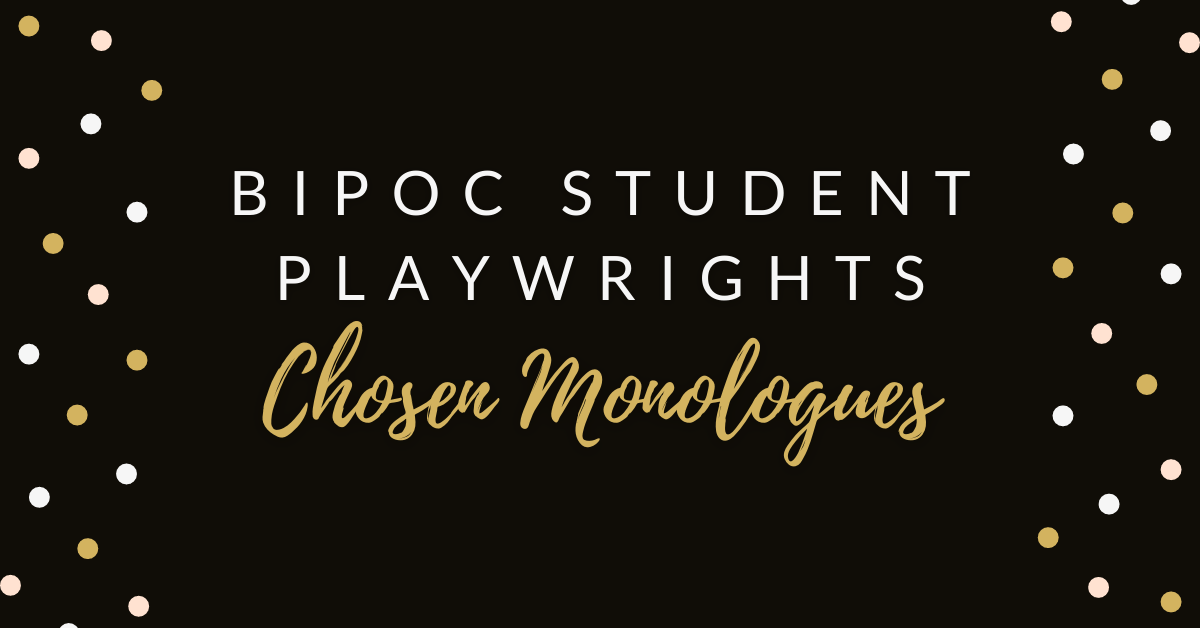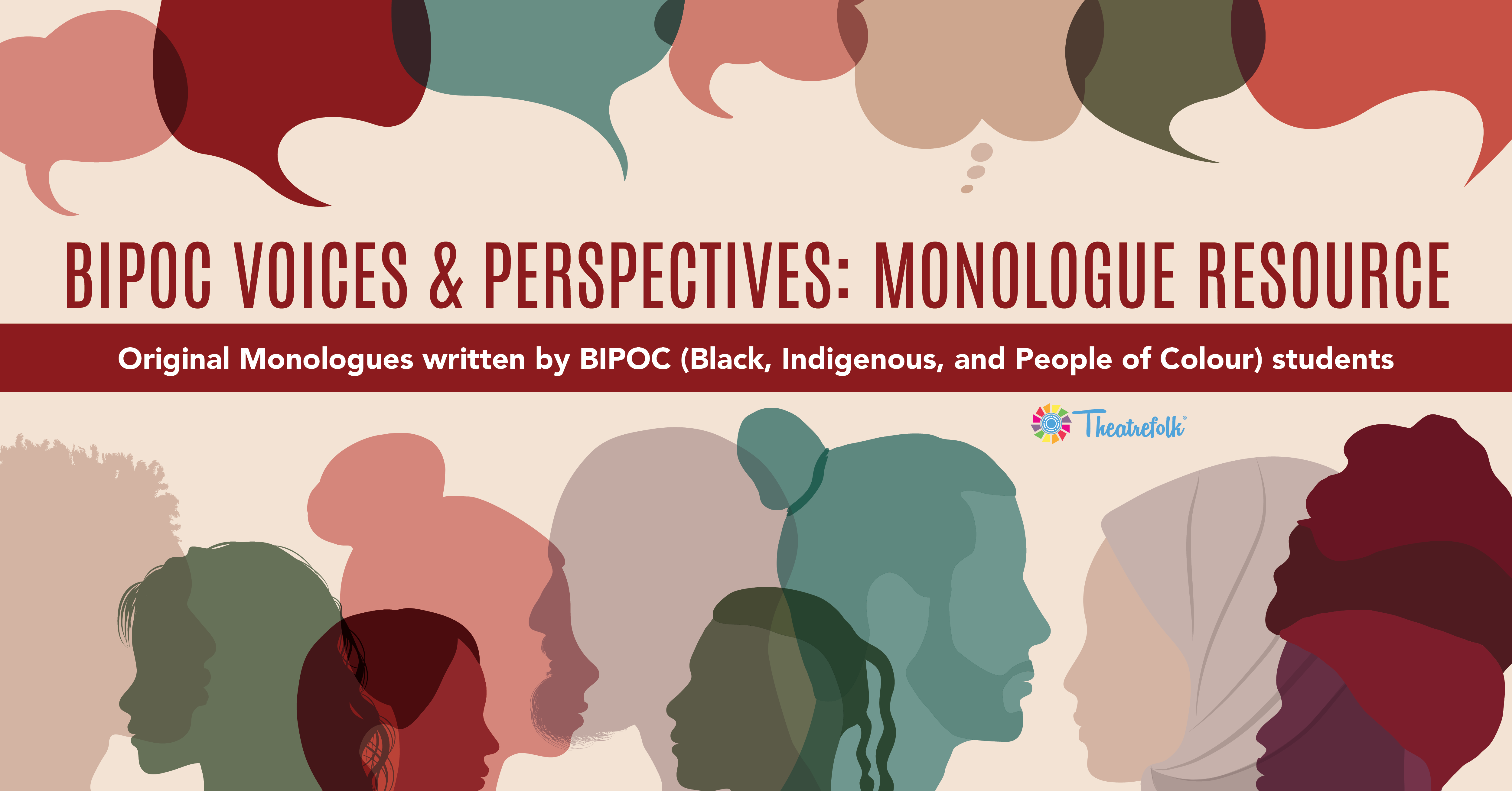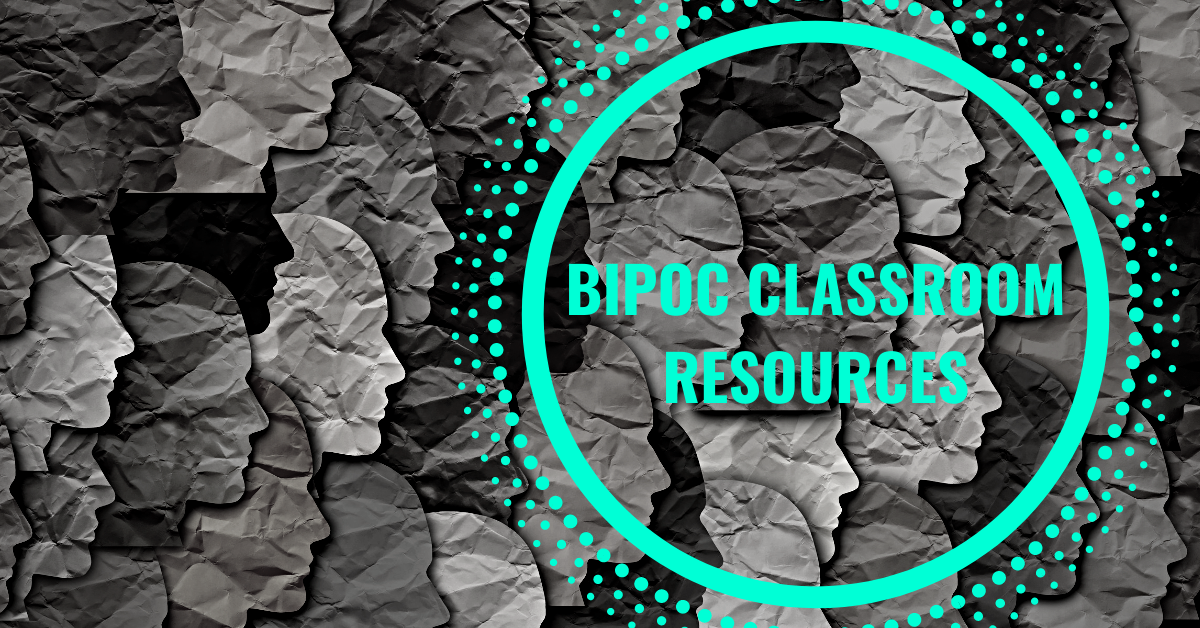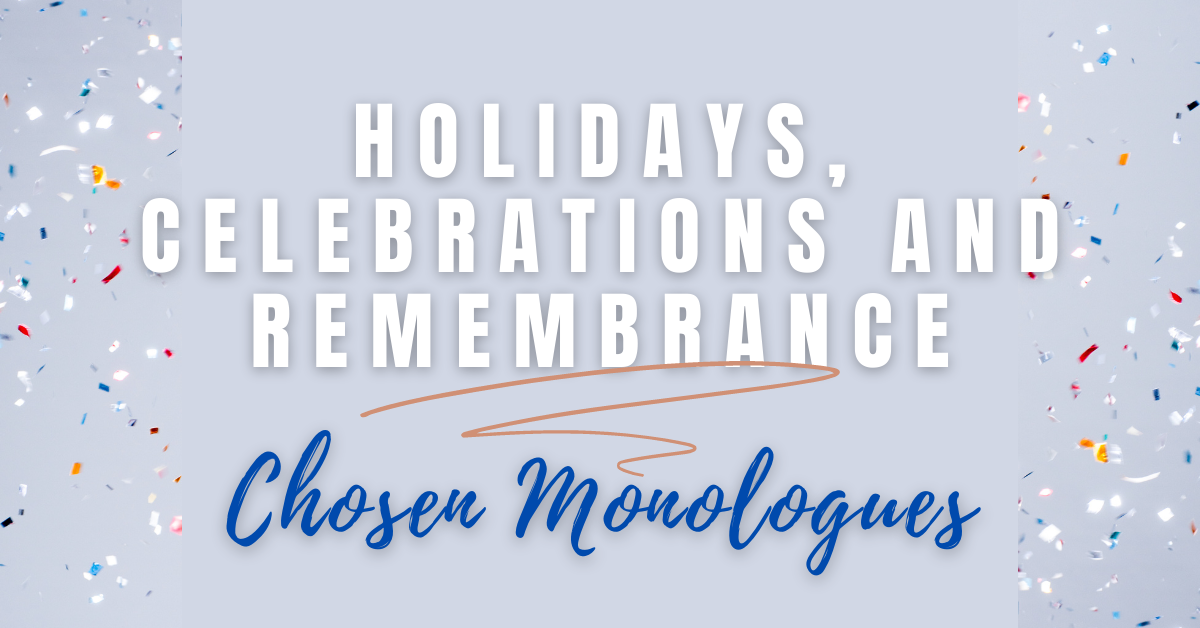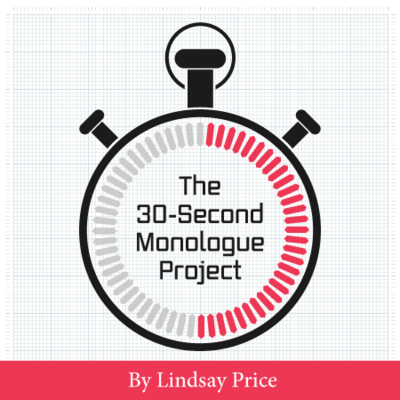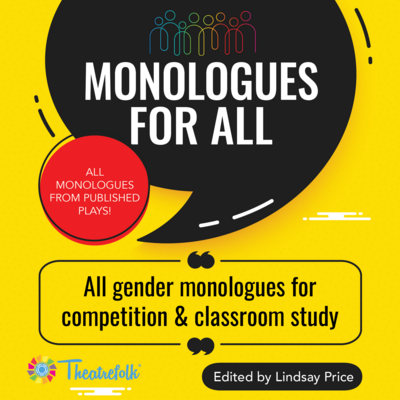BIPOC Student Playwrights – Chosen Monologues
Recently we called out to BIPOC (Black, Indigenous, and People of Colour) student writers to share their voices and perspectives through their original monologue submissions.
We were thrilled with the incredible response we had to our call-out and so thankful to all who shared their work with us.
Congratulations to the following student playwrights whose monologues have been chosen for publication in a Theatrefolk resource book to be released later this year.
You Do You by Tatyana Miller
But hey, that’s my opinion by Kendrick Jackson
My Culture by Yiming Low
The Truth Behind Blackness by Shameka Samuel
Ambiguity by Malia Strayhand
Conclusions, Solutions and Whatever In Between by Charlize Ga
OKAY? by Eryn George
Dear Diary… by Pavani Mishra
Indian’s Prayer by Kaiya Mongrain
See Me by Czarien Jones
Young Black Boy by Nashaun Bates
Dancing Queen by Victoria Huerta
Do I scare you yet? by Bex Gilbert
Home by Isabella Stallworth
Bittersweet by Keyla Morales
The Lights by Mirann Mangino
Mom by Arya Hanumara
identity by Linda Gist
Wash Day by Alexandria Radford
To be American by Yunseo Chung
The Gift by Ken Kanyiri Njoroge
Eyes by Elijah Powell
My Hijab by Nabeeha Mohammed
Clone Sister by Sophia Cecilia Misel
Only Half by Bella Cintron
N.E.R.D. by Armand Walton
Everything’s Ok by Kadence Cross
You Did it for Me by Cynthia Tinschmidt Leal
Their Faces by Lanice Tuck
Questions by Avariella Duran
COLOR ME BROWN by Mia Joelle Baillie
I Can Explain… by Perri Patterson
Peace Entry: More Than Dream by Tunmise Adebowale
My Identity by Rachel Wyatt
Congratulations to all participating student playwrights and be sure to keep checking our site for the launch of our BIPOC student monologue collection resource.
**UPDATE: You can learn more and order a this monologue collection here.**
Related Articles
The 30-Second Monologue Project
by Lindsay Price
Give students the confidence, skills and tools they need to master the monologue with The 30-Second Monologue Project. This four-lesson unit guides students from the first moment to a successful performance.
Monologues for All
by Lindsay Price
Many monologue books have monologues with only male- or female-identified characters. This resource allows students to infer the identity of the character.
